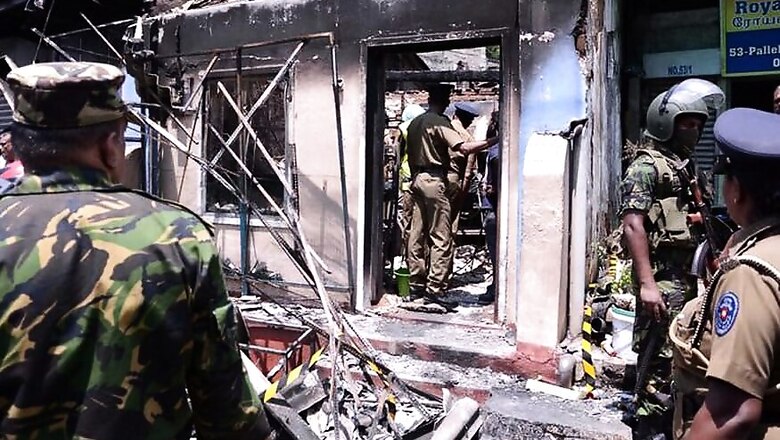
views
Colombo: Sri Lanka declared a nationwide state of emergency Tuesday after anti-Muslim riots left two people dead and more than 100 homes and shops ablaze in the popular hill resort of Kandy.
The government said it was imposing the extraordinary measures after police failed to curb violence in Kandy, a central district famed for its tea plantations and Buddhist relics.
Armed forces were deployed to bolster security in addition to a unit of elite police commandos who were sent in to restore order after rioters defied an overnight curfew and went on the rampage.
"The government is taking all possible measures to protect the people, especially Muslims," Prime Minister Ranil Wickremesinghe told parliament.
He said an inquiry had also been opened into security lapses by police that allowed mobs of Sinhalese rioters to burn mosques as well as homes and businesses belonging to Muslims.
Police spokesman Ruwan Gunasekera said the emergency had given them additional powers to arrest those using social media sites to instigate racial hatred and provoke violence.
He said there were no reports of communal violence outside Kandy district, but police had stepped up security for the visiting Indian and Bangladesh cricket teams.
"A unit of 1,000 police have been deployed to protect cricketers," Gunasekera told reporters in Colombo where India, Bangladesh and hosts Sri Lanka are playing in a tri-nation limited overs tournament which opened Tuesday.
Tensions rose in Kandy Tuesday as the body of a 24-year-old Muslim man was pulled out of a burnt building. Police said two dozen people had been arrested following the riots and remanded for two weeks.
The emergency measures, imposed for the first time since 2011, give authorities sweeping powers to arrest and detain suspects for long periods, and deploy forces where needed.
President Maithripala Sirisena said the measures would "redress the unsatisfactory security situation prevailing in certain parts of the country".
"The police and armed forces have been suitably empowered to deal with criminal elements in the society and urgently restore normalcy," he said.
City planning minister Rauff Hakeem described the riots as a "monumental security lapse" and recommended disciplinary action against those responsible.
Apology to Muslims
Sri Lanka's parliament Tuesday issued an apology to the Muslim minority, which constitutes 10 percent of the country's population of 21 million.
"We want to apologise to the Muslim community for the inhuman acts that have taken place," state enterprise development minister Lakshman Kiriella said in parliament.
The violence in Kandy, a usually serene region of verdant hills frequented by tourists and pilgrims, has threatened to reignite communal tensions that have roiled Sri Lanka in recent weeks.
Gunasekera said no foreign tourists had been affected by the unrest and curfews were imposed only to prevent large gatherings of people and the emergency was aimed at preventing an escalation of unrest.
It is the first time in seven years Sri Lanka has resorted to such measures. The island nation was previously under a state of emergency for nearly three decades as government forces battled Tamil rebels in a civil war that ended in 2009.
Riots erupted on Monday after a man from the island's mainly Buddhist Sinhalese majority died at the hands of a Muslim mob last week.
Mobs set fire to Muslim-owned businesses and attacked a mosque in the east of the country last week after a Muslim chef was accused of adding contraceptives to food sold to Sinhalese customers.
The government dismissed the allegation as baseless and ordered the arrest of those fomenting unrest in the area.
Last November riots in the south of the island left one man dead and homes and vehicles damaged.
In June 2014 riots between Buddhists and Muslims left four dead and many injured.
That bout of violence was instigated by a Buddhist extremist group whose leaders are on trial, accused of spurring religious conflict.










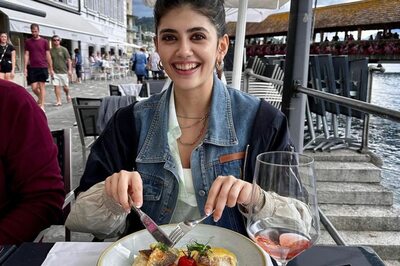



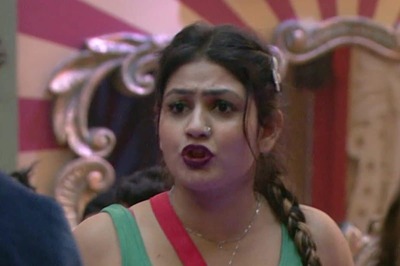


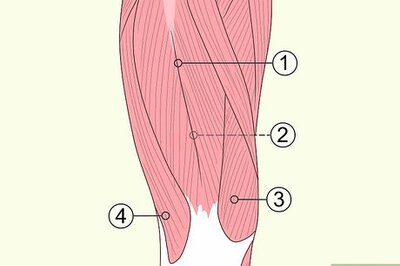
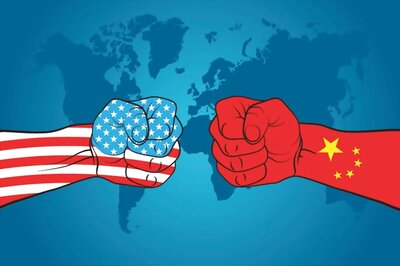
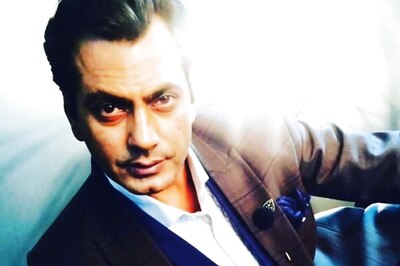
Comments
0 comment